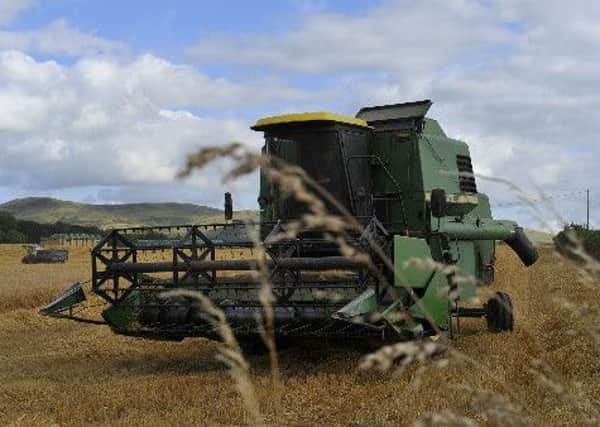Taking long view has more than a grain of truth in it


With little cheer to report in the short term, Jack Watts, lead economic analyst with the Agricultural and Horticultural Development Board, said that the current low prices shouldn’t come as surprise to the industry.
“Low prices are part of the normal cycle – and the important issue at the moment is to be able to build enough resilience into businesses to see them through the current trough,” he said.
Advertisement
Hide AdAdvertisement
Hide AdClearly struggling to hold out any hope of a major improvement in grain prices, he said that although there were no underlying market drivers to suggest that prices would rise, commodity market speculators remained on the lookout for signs of a market opportunity. This could often lead to considerable volatility – with sudden changes in prices if market sentiments indicated fears over weather or political upheavals.
“And although we have had three very large global harvests on the trot which have seen world stocks thoroughly replenished, statistically, it is very unlikely that we will have four in a row,” he added.
However, Watts told the conference, organised by Thorntons, EQ Accountants, Bell Ingram and the Royal Bank, that there was no sign of any great reduction in plantings in global terms, despite the drops in prices in recent years.
“Many growing areas – such as Brazil and Russia – have seen huge devaluations in their currencies,” he added.
He said that while the world price had dropped, these currency devaluations meant that local prices to producers in these areas had not fallen nearly as much: “So the incentive to cut back in these countries had been minimal, meaning that world production has remained high.”
Watts also said that with Scotland’s barley markets being challenged by a 10 per cent increase in plantings in England and wheat currently in oversupply, producers were looking at low-cost strategies.
He said that one approach was to carefully assess field performance – and if yield mapping or farmer experience showed that some areas would be lower yielding, putting them into fallow might be most profitable option this year.
• In a separate development, Swiss crop chemical and breeding company Syngenta has agreed a $43 billion (£30bn) buy-out offer from state-owned ChemChina, marking the largest ever foreign purchase by a Chinese firm.
Advertisement
Hide AdAdvertisement
Hide AdSyngenta, which manufactures crop protection chemicals widely used in the UK – from Amistar to Zulu – also has a strong crop-breeding programme, including a portfolio of genetically modified crops.
The move comes only months after the company had fought off a number of bids from US rival Monsanto.
